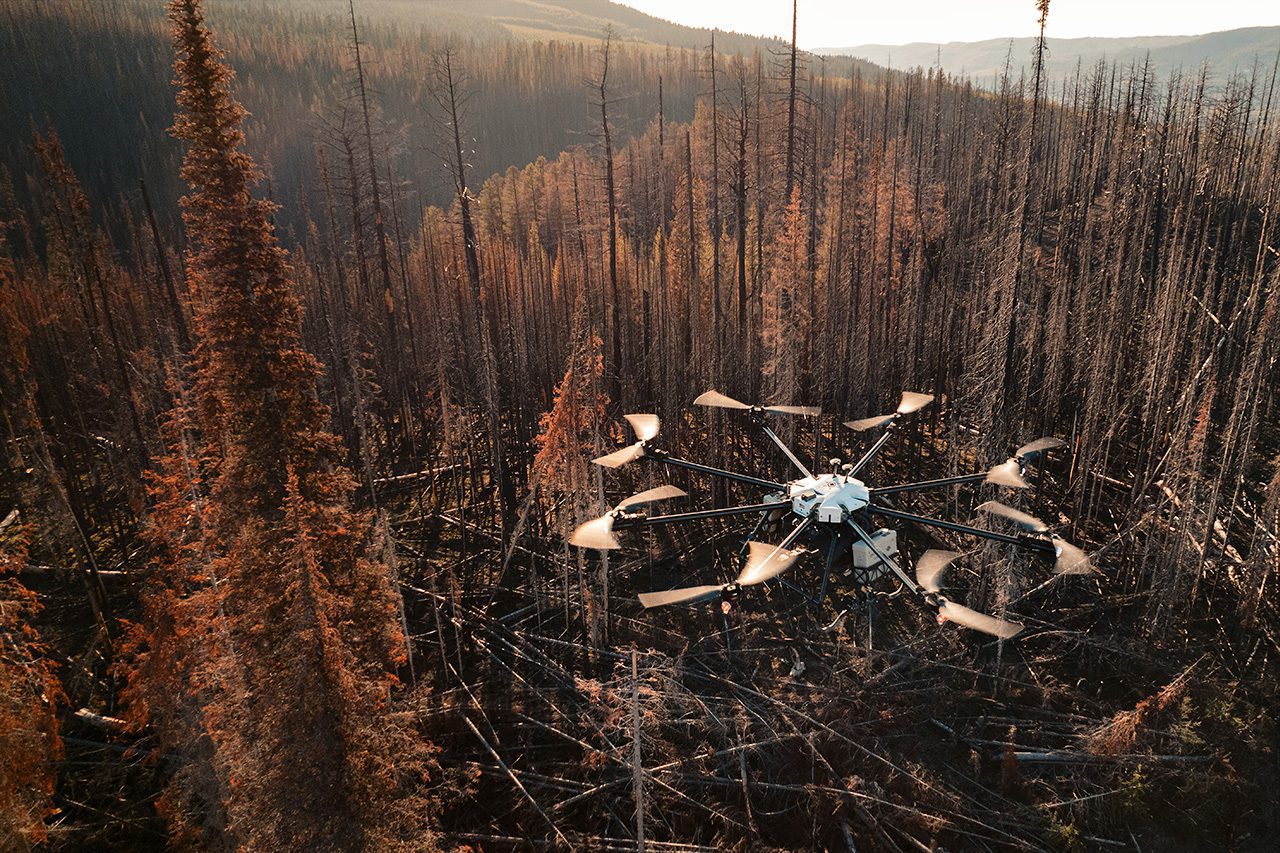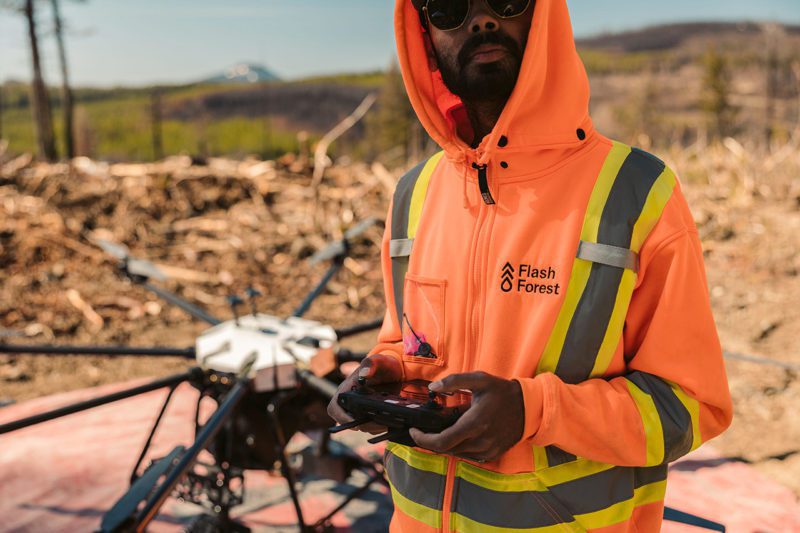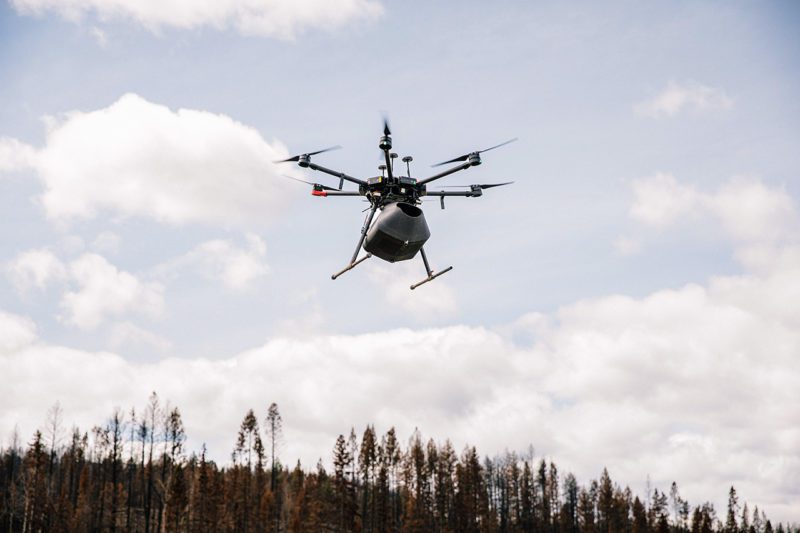Sovereign Seeds: Reclaiming MENA’s Agricultural Future
Reviving local food systems and unlocking rural prosperity
Accelerating post-wildfire recovery in ways conventional solutions can’t achieve

Severe, frequent, and frightening: there’s no doubt you’ve seen the headlines – and perhaps inhaled the smoke – emanating from recent wildfires across Alberta, Nova Scotia, and Quebec.
Every year, wildfire season seems to get worse, particularly during periods of increasingly hot weather and drought. In Canada, wildfires burn about 2.5 million hectares annually, devastating communities, destroying homes and infrastructure and, tragically, claiming human lives. This year, more than 29,000 people have already been evacuated from their homes in Alberta. As the impacts of climate change intensify, the impacts are being felt all around the world.
Wildfires don’t just affect our communities, they also transform the natural world, killing billions of trees that are essential for creating oxygen and supporting life on earth. Historically, wildfires have been a normal and important process in ecosystems, though in recent decades they have become more severe and larger in scale, due to climate change, poor management practices, and other factors. When wildfires are high in severity, the forests struggle to regenerate naturally.

With so much on the line, it’s critical for us to act quickly and strategically to rebuild and reforest whenever and wherever we can.
That’s why the TELUS Pollinator Fund for Good, one of the world’s largest corporate social impact funds, has invested in Flash Forest, a Canadian reforestation company that uses technology to regenerate post-wildfire areas – a partnership directly aimed at combating climate change. Earlier in 2023, the Pollinator Fund co-led a series A investment in Flash Forest to support the development of automated solutions and help plant trees in burn areas using drones. The TELUS Environment and Sustainability team also concluded a multi-year commercial agreement with the startup to help businesses from various industries achieve their own environmental goals using Flash Forest’s end-to-end digital forestry solutions. This elevates TELUS’ deep commitment to sustainability, and advances its goal of becoming a zero-waste, carbon-neutral company by 2030 or sooner.
The efforts of both organizations also mean that areas affected by fires can be replanted faster to create living, breathing, and, critically, biodiverse forests. This is vital because trees are one of the most important tools in the fight against climate change, as they function as carbon sinks, absorbing twice as much carbon as they emit each year. In Canada alone, 26.8 million hectares of tree cover was lost due to fires over a 20-year period beginning in 2001, averaging 1.3 Mha lost each year.

Standard reforestation practices involve planting by hand, with shovels and bags of seedlings. But wildfire patches are incredibly dangerous places for human beings to spend time as the structural integrity of the forest floor is compromised by wildfire, meaning the probability of a tree falling is extremely high. Likewise, burns often occur below the surface, creating wells that are easy to fall into. Previous burn patches are littered with ash, which is regularly kicked up and inhaled every time a human takes a step in the area, leading to pulmonary fibrosis, chronic obstructive pulmonary disease (COPD) and emphysema in people who are regularly exposed to it. Limited accessibility and complex terrain can also slow down the process at best, or make it impossible at worst, especially when heavy machinery is needed. Simply put, tree planting by hand post wildfire is hard.
The startup is automating the reforestation of severe wildfire burn areas currently five to ten times faster and three times cheaper.
That’s where Flash Forest comes in.
The startup is automating the reforestation of severe wildfire burn areas currently five to ten times faster and three times cheaper. Using Flash Forest technology is safer and it accelerates the forest recovery rate —a mission we are passionate about.
—
Background on the Pollinator Fund
Flash Forest’s work aligns with one the Pollinator Fund’s key investment pillars: caring for the planet while creating and implementing technological solutions to address some of the most pressing challenges facing our planet today.
The Pollinator Fund’s core approach is to deploy capital to accelerate positive change in agriculture, health care, and climate change.
Since its launch in 2020, the Pollinator Fund has demonstrated continued credible action through its portfolio and investment strategy. It just released its 2022 impact report, sharing its progress and impact to date. Nearly $40 million of its initial $100-million investment commitment has been invested and the Pollinator Fund is seeing promising early results with its portfolio companies, delivering 155 per cent revenue growth.
The Pollinator Fund also launched the Pollinator Impact Navigation Tool. Built to serve the needs of startups, it will help advance the impact investment ecosystem by equipping them with the information required to manage their impact and communicating outcomes to investors. The Pollinator Impact Navigation Tool is released as an open-source resource to enable other impact investors to improve their own operations by deploying the tool with their portfolio companies.
As a value-add investor, the TELUS Pollinator Fund is investing in the next generation of responsible businesses, while also applying TELUS’ unique capabilities to help portfolio companies achieve their financial and impact goals.
This is reflected in the company’s commercial agreement with Flash Forest. TELUS technology teams provide connectivity for the operations, including wifi and telecommunications services in what are often extremely remote areas. These services are used for Flash Forest’s work, allowing them to control drones and communicate on the ground.
The Pollinator Fund seeks to invest and create a coalition driven by one common goal: creating impact that will make the world a better place — one tree, business, idea, or solution at a time.
Mission driven startups and partners looking for impact investments can contact TELUS here to learn more.
Related Content
Comments
Deep Dives

Featuring
Clarisse Awamengwi
IE Correspondent
July 17 - 12:00 PM EST

Featuring
Russell McLeod
July 24 - 12:00 PM EST
RECENT
Editor's Picks
Webinars
News & Events
Subscribe to our newsletter to receive updates about new Magazine content and upcoming webinars, deep dives, and events.
Become a Premium Member to access the full library of webinars and deep dives, exclusive membership portal, member directory, message board, and curated live chats.
At Impact Entrepreneur, we champion fearless, independent journalism and education, spotlighting the inspiring changemakers building the Impact Economy. Diversity, equity, sustainability, and democracy face unprecedented threats from misinformation, powerful interests, and systemic inequities.
We believe a sustainable and equitable future is possible—but we can't achieve it without your help. Our independent voice depends entirely on support from changemakers like you.
Please step up today. Your donation—no matter the size—ensures we continue delivering impactful journalism and education that push boundaries and hold power accountable.
Join us in protecting what truly matters. It only takes a minute to make a real difference.
0 Comments